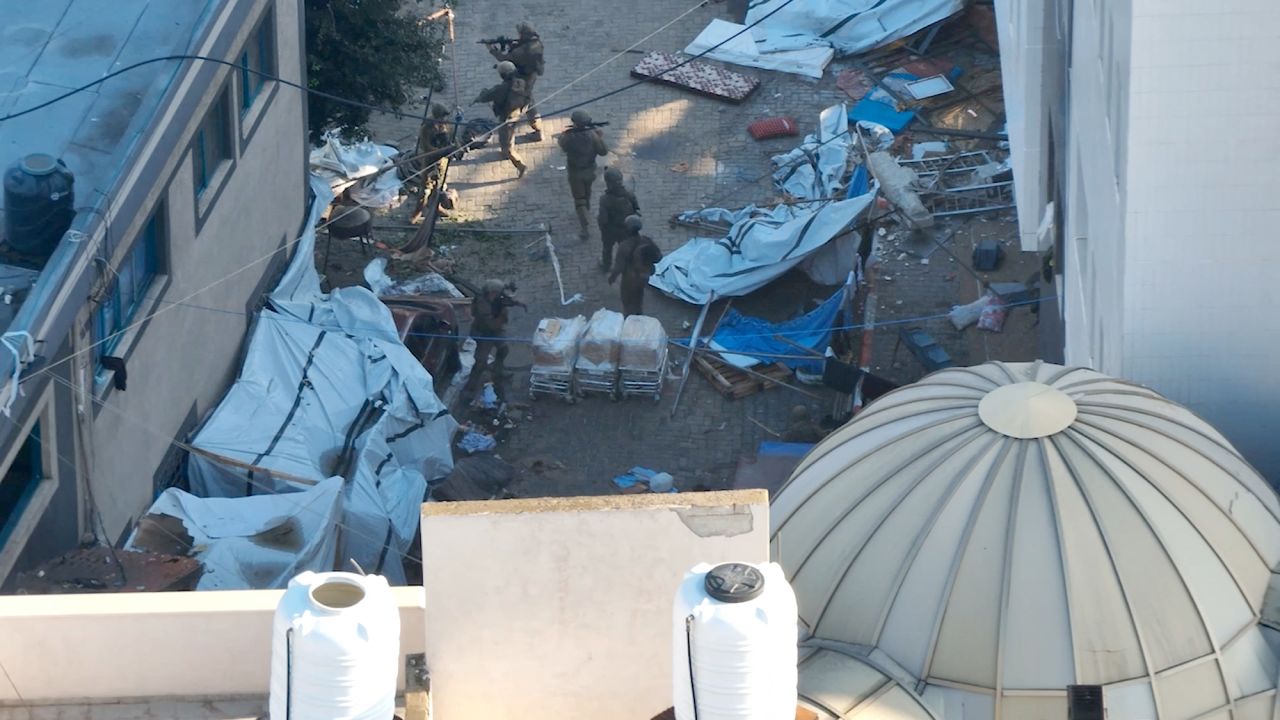Gaza’s largest hospital, Al-Shifa, has become a flashpoint in the conflict that began when Hamas militants crossed the border into Israel on October 7, killing around 1,200 people.
Palestinians say the fighting around Al-Shifa is proof of Israel’s wanton disregard for civilian life in Gaza, while Israel points to the hospital as an example of Hamas’ use of civilians as human shields.
Since launching an operation at Al-Shifa this week, Israel said it found a tunnel shaft and military equipment, but it has not yet shown proof of a large-scale command and control center.
Here’s what we know so far:
What does Israel say? Israel has repeatedly accused Hamas of operating from tunnels beneath the vast complex of Al-Shifa hospital.
In a presentation to the media last month, Israeli military spokesman Daniel Hagari claimed that Hamas was directing rocket attacks and commanding operations from bunkers underneath the hospital building, which he said were linked to the network of tunnels that Hamas had dug underneath Gaza City.
The IDF also published an “intelligence-based” illustrated video of what it claims the Hamas headquarters under Al-Shifa looks like. The video shows a 3D diagram of the hospital, which moves to show an animated network of purported tunnels and operation rooms.
The White House has backed Israel’s claims, saying that Hamas was storing weapons and operating a command node from the Al-Shifa hospital in Gaza, citing US intelligence.
Hamas denials: Israel’s claims have been vehemently denied by Hamas and hospital officials.
The director general of the Hamas-controlled Gaza health ministry, Dr. Medhat Abbas, told CNN that hospitals in the enclave “are used to treat patients only” and are not being used “to hide anyone.”
After Israel launched its offensive, Hamas accused the US of giving Israel “a green light … to commit more massacres against civilians” by using Israel’s “false narrative” of Al-Shifa being used as a command center.
CNN has not verified the claims of either Israel or Hamas.
What evidence has Israel given? After launching the raid on Wednesday, Israel said soldiers had located a room in the hospital where they found, “technological assets, along with military and combat equipment used by Hamas.”
“In another department in the hospital, the soldiers located an operational command center and technological assets belonging to Hamas,” the statement said, indicating “that the terrorist organization uses the hospital for terrorist purposes.”
Israel released video to back up its claim of a tunnel shaft in the grounds of Al-Shifa. In the footage, the shaft appears to be reinforced with concrete. Exposed pipes and cabling can also be seen close to the surface. Hamas rejected the findings as “baseless lies.”
The bodies of two Israeli hostages – a 65-year-old woman and an Israeli soldier – were found near the vicinity of Al-Shifa hospital this week, Israel’s military said.
Israel said it is still working to expose tunnel infrastructure and added it will provide further evidence.
UN urges access: The United Nations human rights chief has called on Israel to grant his team access to Gaza to investigate the competing claims about Al-Shifa being used as a Hamas base.
“We need to look into this by having access. We cannot rely on one or the other party when it comes to this,” Volker Türk, the UN High Commissioner for Human Rights, told CNN’s Becky Anderson when asked about allegations by the Israeli military that Hamas was hiding weapons at the hospital.
He said the situation needs an “independent international investigation, because we have different narratives.”


























